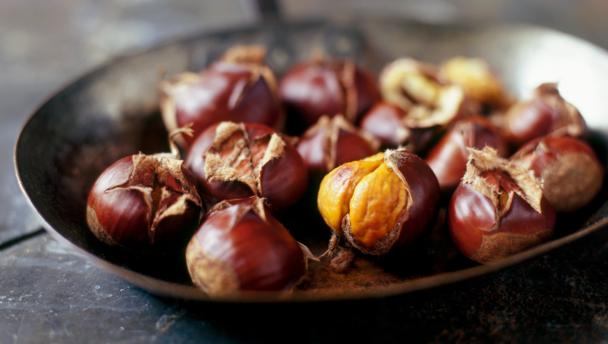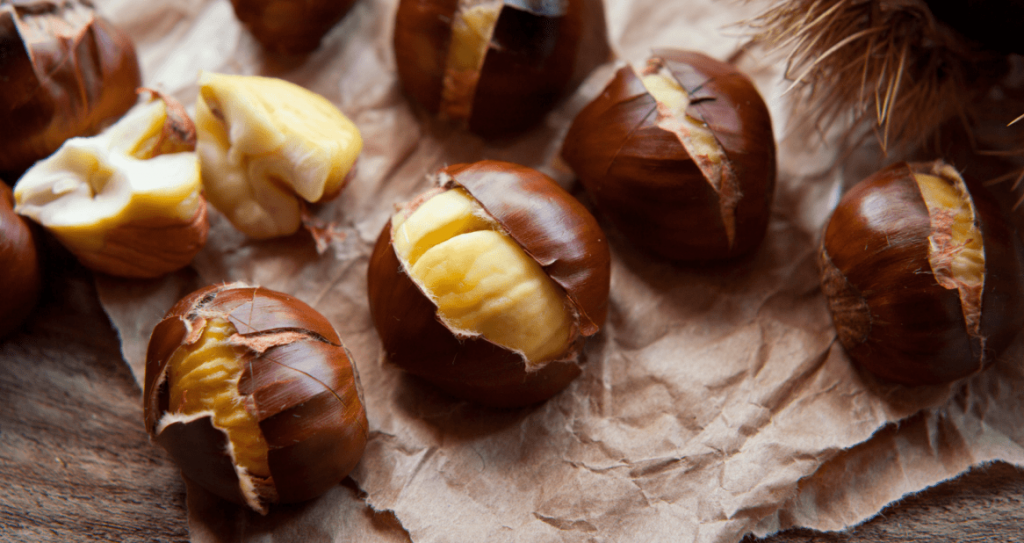Chestnuts are common wellsprings of energy and health, and in spite of the fact that they fall into the class of dried natural products, they are not fatty. In this way, around 100 grams of chestnuts have around 200 calories.

Chestnuts filter their blood and fortify insusceptibility, they are difficult to process, however they give a considerable measure of energy, since they contain a great deal of starches, proteins, sugars, fats and cellulose. They are nutritious nourishments and contain important minerals and vitamins, for example, magnesium, calcium, potassium, phosphorus, press and all vitamin B groups. The fruits are used in the diet in various ways – boiled, roasted, like pear, dried for flour, in very sweet and savory dishes, and chestnut honey.
The chestnuts are also used as tea. They contain as much as 95% tannin, various essential resins and vitamin K, which is quite important in stopping bleeding because it narrows the blood vessels. In combination with thyme heals the problems of the breathing system, purifies the body, helps with back pain, diarrhea, and so on. Chestnut honey is also nutritious and healing. It treats gastritis and problems with digestion, protects the liver, contributes to better circulation, and the like.

With respect to the wild chestnut, its organic products are not suggested for utilization, but rather are utilized as a part of people drug and in addition all parts of the tree that are mending, which is regularly utilized as a part of the treatment of veins and stiffness issues. The chestnut contains escine (saponin), which is credited with reinforcing the dividers of the vessels and veins, in this manner acting diuretic and calming, diminishes issues with the lymph and assists with skin sicknesses.
